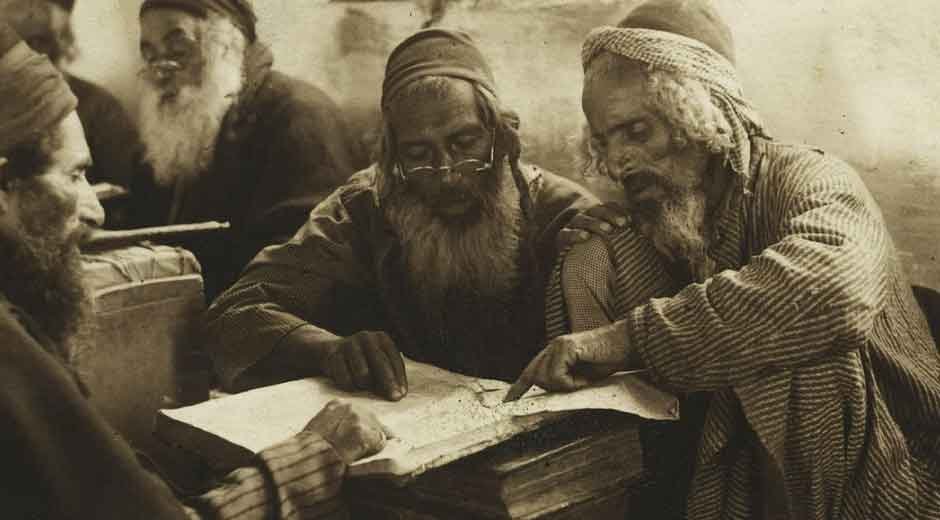Mourning is a deeply human experience, and within Jewish tradition, it takes on a unique dimension shaped by both ritual and sacred learning. The study of Mishnah holds a particularly meaningful place in this process, offering comfort to the bereaved and merit to the soul of the departed. The Mishnah, compiled centuries ago, continues to serve as a bridge between the living and the deceased, binding generations together through shared devotion and study. Its verses are not merely read as texts; they are embraced as spiritual acts that uplift and transform grief into purpose. We will explore how Mishnah study became an essential element of Jewish mourning customs, why it continues to resonate so strongly, and how its lessons extend beyond personal sorrow into a broader communal responsibility.
The Connection Between Mishnah Study and Mourning
- The Spiritual Significance of Mishnah in Mourning
One of the most profound aspects of Mishnah study during mourning is the belief that it provides merit to the soul of the deceased. Jewish thought emphasizes the idea that when living relatives or community members engage in Torah study, especially the Mishnah, the spiritual reward can be transferred to the departed. This act not only honors the deceased but also demonstrates an ongoing bond that does not dissolve with physical death. Instead of viewing mourning as a passive state of sorrow, Jewish tradition encourages active engagement in study, turning grief into a pathway for spiritual elevation.
By studying passages of the Mishnah, mourners align their personal loss with a collective effort to sanctify life and memory, ensuring that the soul continues its journey with dignity. This practice emphasizes the enduring connection between the living and the departed, reinforcing the belief that acts of righteousness on earth impact the soul’s destiny in the world to come. Organizations such as Chevrah Lomdei Mishnah embody this principle, helping families and communities engage in study that honors loved ones while strengthening faith and continuity.
- Mishnah Study as a Source of Comfort and Structure
Mourning often leaves individuals feeling disoriented, lost in a world that suddenly feels unfamiliar without the presence of a loved one. The study of Mishnah provides structure during this time, offering a tangible practice that channels grief into meaningful action. Each chapter studied serves as both a ritual and a discipline, grounding mourners in tradition while giving them a sense of control in an otherwise uncontrollable moment. The rhythm of study, the pronunciation of Hebrew words, and the reflection on teachings remind mourners that they are not alone but are participating in a practice shared by countless generations before them.
Comfort arises not just from the words themselves but from the act of carrying forward a chain of memory and devotion. Instead of allowing time to drift aimlessly during sorrow, Mishnah study provides a rhythm, giving each day a sense of purpose while allowing grief to be expressed within a sacred framework.
- The Role of Community in Mishnah Study
While individual study is valuable, communal study of the Mishnah carries an even deeper significance during mourning. Gatherings where family, friends, and community members come together to study on behalf of the deceased demonstrate the collective responsibility within Jewish tradition. Mourning is not seen solely as a private burden but as an experience shared by the larger community. By reciting and discussing passages together, the mourners are supported by others, and the soul of the departed benefits from a communal act of remembrance.
This practice builds solidarity, reminding those in grief that their loss is not borne in isolation. Communities such as Chevra Lomdei Mishnah highlight this very principle, organizing study sessions and offering support to ensure that the memory of the deceased is honored with dignity. The act of coming together to study reinforces the Jewish view that memory is strengthened when it is shared and nurtured by many voices united in reverence.
- Mishnah as a Link Between Generations
Mishnah study during mourning also carries the profound role of linking past, present, and future generations. Each time a mourner recites verses of the Mishnah, they are not only honoring the departed but also continuing a practice their ancestors observed. This continuity transforms mourning into a multigenerational act of devotion, where grief becomes an opportunity to carry forward the values of Jewish heritage. Parents often encourage their children to study Mishnah in memory of grandparents or relatives, fostering a connection between generations that might never have met in life but remain spiritually connected through this practice.
In this sense, Mishnah study is not simply about death; it is also about life, transmitting tradition, values, and spiritual strength to those who remain. Mourning thus becomes a moment where continuity is reaffirmed, ensuring that Jewish identity and memory endure beyond personal loss. This enduring chain of study reflects the resilience of faith and the timelessness of tradition.
The role of Mishnah study in Jewish mourning practices reflects the profound ways tradition transforms grief into continuity, remembrance, and purpose. It is not merely about reciting ancient words but about actively uplifting the soul of the departed, offering comfort to the bereaved, and strengthening the bonds of community and heritage. Through Mishnah study, mourning becomes a bridge between worlds—between the living and the departed, between past and future generations, and between grief and spiritual growth. By embracing this practice, Jewish tradition ensures that memory is not lost, but rather woven into the ongoing rhythm of life, keeping the departed present in both study and heart.








